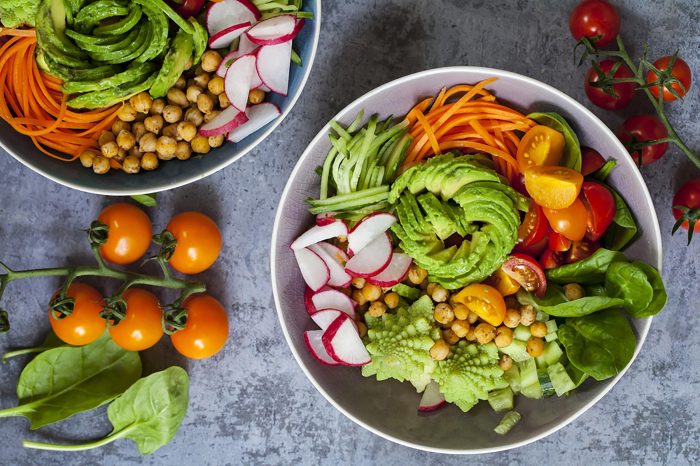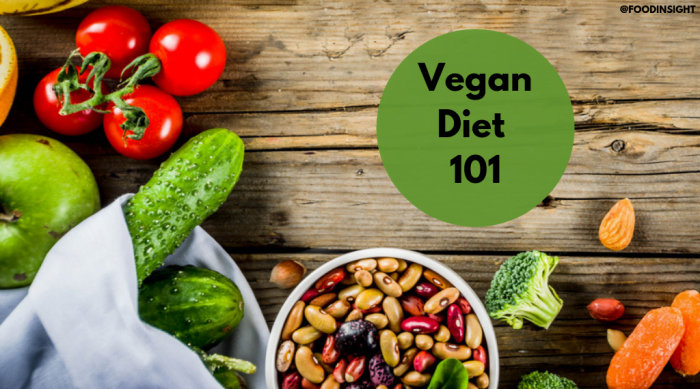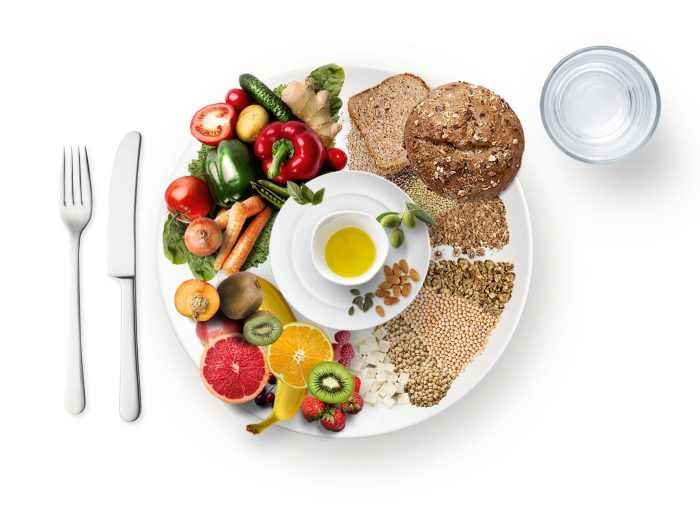Vegan diet options have emerged as a compelling choice for individuals seeking ethical, sustainable, and health-conscious lifestyles. This guide delves into the nuances of veganism, empowering readers with a comprehensive understanding of its variations, nutritional considerations, and the benefits it offers.
Embark on a journey into the world of plant-based eating, where we explore the diverse options available, address potential challenges, and uncover the remarkable health advantages associated with a vegan diet.
Introduction
Veganism, a dietary choice that excludes all animal products, has gained significant traction worldwide. Fueled by ethical concerns for animal welfare, environmental sustainability, and personal health, the vegan lifestyle has witnessed a surge in popularity.Statistics indicate a steady rise in the number of individuals embracing veganism.
In the United States alone, the Vegan Society estimates that the vegan population has grown by 300% in the past decade. Similar trends are observed globally, with countries like the United Kingdom, Germany, and Australia reporting a significant increase in veganism.
Types of Vegan Diet Options
Vegan diets offer a diverse range of variations, each emphasizing specific principles and nutritional considerations. Here are some common types of vegan diets:
Whole-Food, Plant-Based Diet, Vegan diet options
This diet focuses on consuming unprocessed or minimally processed plant-based foods, such as fruits, vegetables, whole grains, legumes, and nuts. It aims to provide a balanced intake of nutrients and fiber, promoting overall health and well-being.
Raw Vegan Diet
A raw vegan diet consists exclusively of uncooked plant-based foods, including fruits, vegetables, nuts, and seeds. It excludes all cooked foods, processed ingredients, and animal products. Proponents of this diet believe that cooking destroys essential nutrients and enzymes.
Fruitarian Diet
A fruitarian diet primarily revolves around consuming fresh fruits, with some variations including vegetables, nuts, and seeds. This diet emphasizes the consumption of natural sugars and vitamins found in fruits, promoting a low-fat, high-carbohydrate intake.
Essential Nutrients in a Vegan Diet
Vegans adhere to a plant-based diet, excluding all animal products. To ensure optimal health, it’s crucial for vegans to obtain essential nutrients from plant sources. This includes protein, iron, calcium, and vitamin B12.
Protein
Protein is vital for building and repairing tissues. Plant-based sources of protein include:
- Legumes (beans, lentils, peas)
- Tofu and tempeh
- Quinoa
- Nuts and seeds
Iron
Iron is necessary for oxygen transport and energy production. Good plant-based sources of iron include:
- Leafy green vegetables (spinach, kale)
- Legumes
- Tofu
- Fortified cereals
Calcium
Calcium is essential for bone health. Plant-based sources of calcium include:
- Fortified plant milks (almond milk, soy milk)
- Leafy green vegetables
- Tofu
- Nuts and seeds
Vitamin B12
Vitamin B12 is crucial for nerve function and red blood cell production. Since it’s not naturally found in plant foods, vegans should obtain it through fortified foods or supplements.
Meal Planning for a Vegan Diet

Meal planning is crucial for vegans to ensure they meet their nutritional needs while following a plant-based diet. Balanced meal planning involves incorporating a variety of plant-based foods from all food groups to provide the essential nutrients for optimal health.
Vegans abstain from consuming any animal products, including fish. Fish is an animal, so it does not fit into a vegan diet. If you’re considering a vegan lifestyle, it’s important to understand do vegans eat fish and why it’s not included in a vegan diet.
Creating a meal plan that meets nutritional needs requires an understanding of the essential nutrients vegans need. These include protein, carbohydrates, healthy fats, vitamins, and minerals. Plant-based sources of these nutrients include legumes, whole grains, fruits, vegetables, nuts, and seeds.
Incorporating a Variety of Plant-Based Foods
To ensure a balanced intake of nutrients, vegans should incorporate a variety of plant-based foods from all food groups into their meals. This includes:
- Fruits and vegetables:Rich in vitamins, minerals, antioxidants, and fiber.
- Legumes:Excellent sources of protein, fiber, and iron.
- Whole grains:Provide complex carbohydrates, fiber, and essential vitamins and minerals.
li> Nuts and seeds:Good sources of healthy fats, protein, and fiber.
Sample Meal Plans for Different Dietary Variations
Meal plans for vegans can vary depending on individual dietary variations and preferences. Some common variations include:
- Whole-food, plant-based diet:Focuses on unprocessed, whole plant foods.
- Raw vegan diet:Consumes only uncooked plant foods.
- Fruitarian diet:Primarily consists of fruits, with limited consumption of other plant foods.
Sample meal plans for these variations can be found online or from registered dietitians specializing in plant-based nutrition.
If you’re curious about the dietary restrictions of vegans, you might wonder, do vegans eat fish ? The answer is a resounding no. Vegans abstain from consuming all animal products, including meat, poultry, fish, eggs, and dairy. Their diet consists solely of plant-based foods such as fruits, vegetables, grains, and legumes.
Challenges and Solutions in a Vegan Diet
Adopting a vegan lifestyle offers numerous health benefits, but it also presents certain challenges that need to be addressed. Understanding these challenges and finding practical solutions is crucial for vegans to maintain a healthy and balanced diet.
One significant challenge is the social pressure and dining out experiences. In social settings where non-vegan options are prevalent, vegans may feel pressured to compromise their dietary choices. Additionally, finding vegan-friendly restaurants or dishes while dining out can be challenging.
Nutrient Deficiencies
Another challenge lies in ensuring adequate intake of essential nutrients, particularly vitamin B12, iron, calcium, and omega-3 fatty acids. Vitamin B12 is primarily found in animal products, so vegans need to rely on fortified foods or supplements to meet their daily requirement.
Iron is abundant in plant-based foods, but its absorption is lower compared to heme iron found in animal products. Calcium is crucial for bone health and can be obtained from fortified plant-based milk, leafy green vegetables, and tofu.
Health Benefits of a Vegan Diet
A vegan diet, which excludes all animal products, offers a multitude of potential health benefits. Research suggests that adopting a vegan lifestyle may reduce the risk of chronic diseases, improve heart health, and aid in weight management.
Reduced Risk of Chronic Diseases
Studies have shown that vegans have a lower risk of developing certain chronic diseases, including heart disease, stroke, type 2 diabetes, and some types of cancer. This is attributed to the high intake of fruits, vegetables, and whole grains in a vegan diet, which are rich in antioxidants, fiber, and phytochemicals that protect against oxidative stress and inflammation.
Improved Heart Health
Vegan diets are typically low in saturated fat and cholesterol, which can contribute to improved heart health. Plant-based foods contain high levels of fiber, which helps lower cholesterol levels and reduce the risk of heart disease. Additionally, vegans tend to have lower blood pressure and healthier blood lipid profiles compared to non-vegans.
Weight Management
Vegan diets are often higher in fiber and lower in calories than non-vegan diets. Fiber promotes satiety and fullness, helping individuals feel satisfied after eating and reducing overall calorie intake. Additionally, plant-based foods are typically less energy-dense than animal products, making it easier to maintain a healthy weight.
Resources and Support for Vegans

Vegans can access various resources to guide and support their lifestyle. These include:
- Online Communities and Support Groups:Engage with other vegans, share experiences, and get encouragement in online forums and social media groups dedicated to veganism.
- Vegan Cookbooks and Recipes:Explore a wide range of vegan recipes and meal ideas to ensure a balanced and satisfying diet. Many resources provide tips and guidance on vegan cooking.
- Health Professionals Specializing in Plant-Based Diets:Consult registered dietitians or other healthcare providers who specialize in plant-based nutrition for personalized advice and support.
These resources empower vegans to navigate their dietary choices confidently, providing access to expert guidance, recipe inspiration, and a sense of community.
Final Review

As we conclude our exploration of vegan diet options, it becomes evident that embracing a plant-based lifestyle is not merely a dietary choice but a transformative journey. By embracing the principles of veganism, individuals not only nourish their bodies but also align with ethical values, contribute to environmental sustainability, and unlock a world of culinary delights.
Answers to Common Questions
What are the key principles of a vegan diet?
A vegan diet excludes all animal products, including meat, dairy, eggs, and honey. It emphasizes whole, unprocessed plant-based foods such as fruits, vegetables, legumes, and whole grains.
How can vegans ensure they get enough protein?
Plant-based sources rich in protein include legumes (beans, lentils, chickpeas), tofu, tempeh, nuts, and seeds. Combining different plant-based protein sources throughout the day helps meet protein needs.
What are some common challenges vegans face?
Social pressures, dining out options, and ensuring adequate nutrient intake can be challenges for vegans. However, with proper planning and support, these challenges can be effectively addressed.